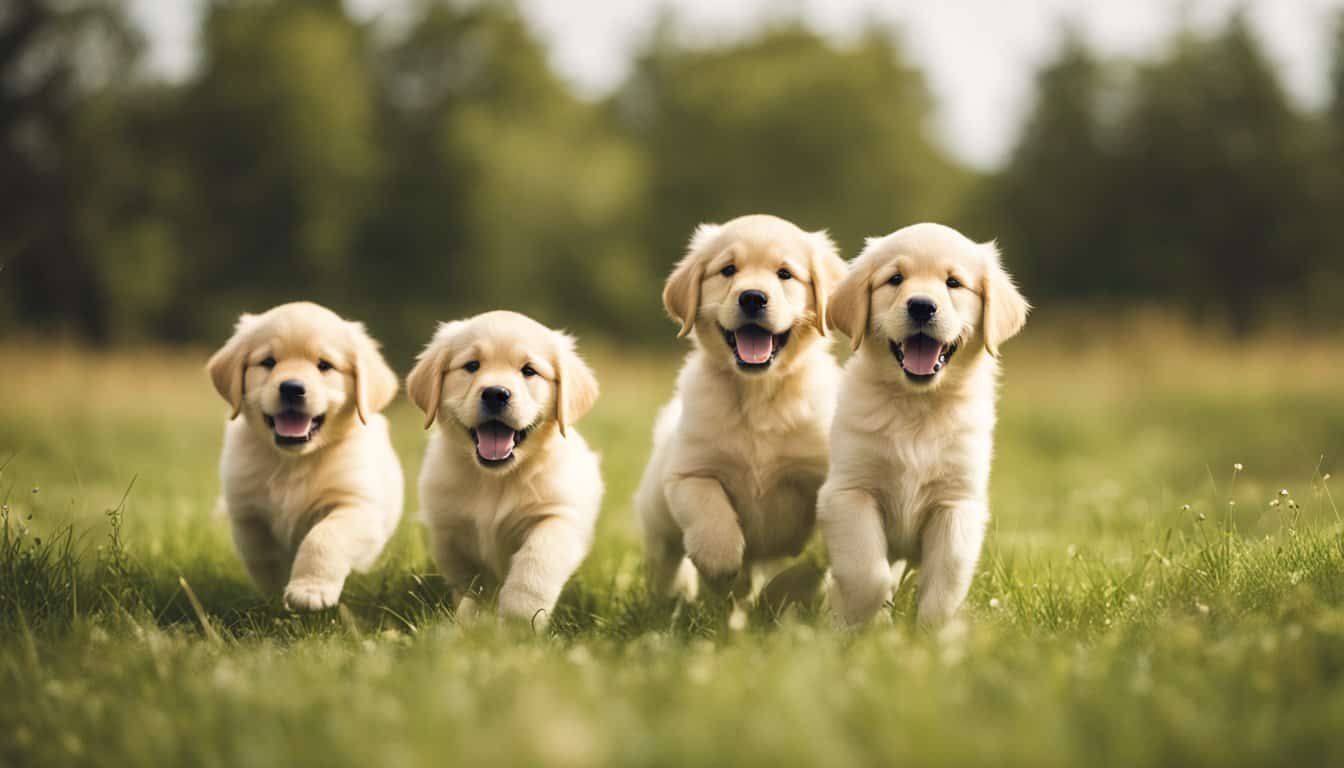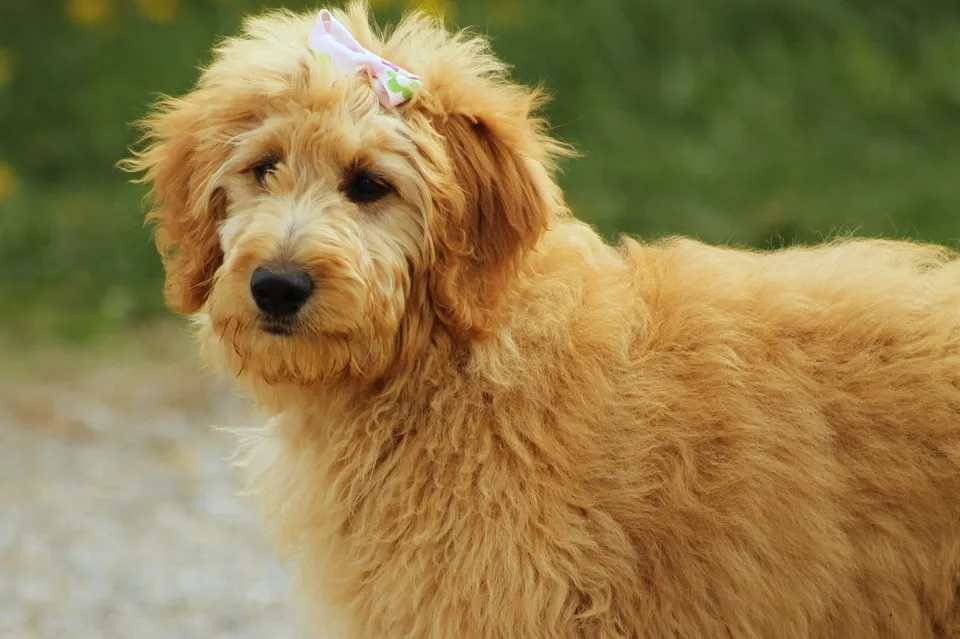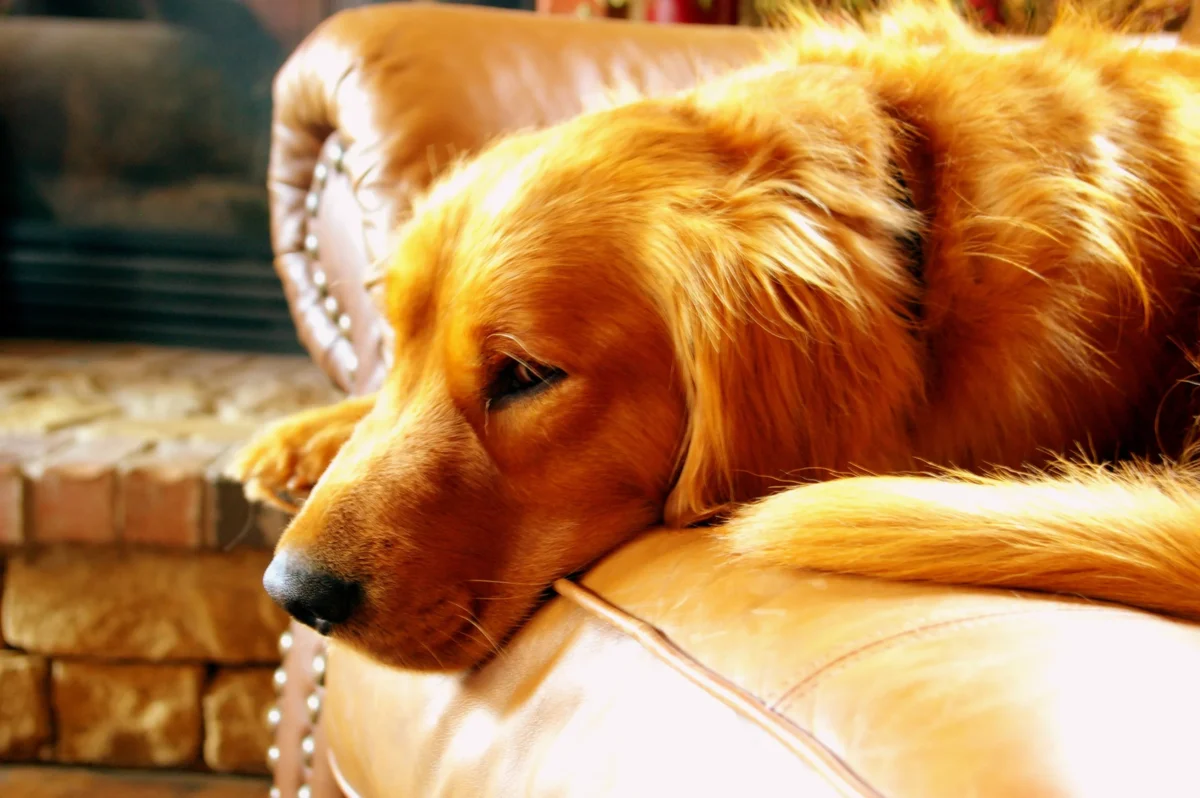Are you a proud owner of a golden retriever? If so, you may be wondering if your furry friend is lactose intolerant. In this article, we’ll explore the topic of golden retrievers and lactose intolerance to help you better understand their dietary needs. Whether you’re considering giving your golden retriever some dairy or simply curious about their digestive system, we’ve got you covered. So, let’s dive in and find out if golden retrievers are lactose intolerant.
Have you ever noticed any unusual reactions in your golden retriever after consuming dairy products? If so, you may be wondering if your beloved pet is lactose intolerant. In this article, we’ll explore the topic of golden retrievers and lactose intolerance to help you better understand their dietary needs. Whether you’re considering giving your golden retriever some dairy or simply curious about their digestive system, we’ve got you covered. So, let’s dive in and find out if golden retrievers are lactose intolerant.
If you’re a golden retriever owner, you may have wondered if your furry friend is lactose intolerant. In this article, we’ll delve into the topic of golden retrievers and lactose intolerance to provide you with some valuable insights. Whether you’re considering incorporating dairy into your dog’s diet or simply curious about their digestive abilities, we’ve got you covered. So, let’s explore whether golden retrievers are lactose intolerant and what it means for their overall health and well-being.
What is Lactose Intolerance?
As a dog lover and owner of a golden retriever and a Goldendoodle, you want to ensure that you understand the dietary needs of your furry friends. When it comes to lactose intolerance, it’s important to know whether golden retrievers and Goldendoodles are affected by it. So, let’s dive into what lactose intolerance actually means.
Lactose intolerance is a common digestive disorder that affects both humans and some animals. It occurs when the body has trouble digesting lactose, a sugar found in milk and dairy products. This is because the small intestine doesn’t produce enough lactase, the enzyme responsible for breaking down lactose into simpler sugars that can be easily absorbed.
For humans, lactose intolerance often leads to symptoms like gas, bloating, diarrhea, and stomach cramps after consuming dairy products. But what about our canine companions? Are golden retrievers and Goldendoodles prone to lactose intolerance?
Interestingly, dogs in general, including golden retrievers and Goldendoodles, have a higher tolerance for lactose compared to humans. Most dogs produce enough lactase to break down lactose without any issues. However, there are exceptions, and some dogs may be lactose intolerant.
If your golden retriever or Goldendoodle experiences symptoms like diarrhea, vomiting, or excessive gas after consuming milk or dairy products, it could be a sign of lactose intolerance. It’s important to consult with your veterinarian to rule out other potential causes and determine the best course of action for your furry friend.
Remember, every dog is unique, and their dietary needs may vary. While some golden retrievers and Goldendoodles may handle dairy products well, others may be more sensitive to lactose. To ensure their optimal health, it’s always a good idea to consult with your veterinarian before introducing any new foods into their diet.
Understanding lactose intolerance and its implications for your golden retriever or Goldendoodle can help you make informed decisions about their nutrition. With proper care and attention, you can continue to provide a balanced and healthy diet for your beloved canine companion.
Understanding Lactose Intolerance in Dogs
As a dog lover and owner of both a golden retriever and a Goldendoodle, understanding their dietary needs is crucial. You may have heard about lactose intolerance in humans, but what about our furry friends? In this section, we’ll delve into the topic of lactose intolerance in dogs and explore how it may affect your beloved golden retriever or Goldendoodle.
What is lactose intolerance?
Lactose intolerance is a common digestive disorder that affects both humans and animals. It occurs when the body lacks an enzyme called lactase, which is needed to break down lactose – the sugar found in milk and dairy products. Without enough lactase, the undigested lactose moves to the colon, leading to uncomfortable symptoms.
Do golden retrievers and Goldendoodles experience lactose intolerance?

« Unveiling the Ultimate Guide: Take Your Golden Retriever on a Stress-Free Plane Adventure
Discover the Surprising Similarities and Key Differences Between Golden Retrievers and Labrador Retrievers – Which Breed is Right for You? »
While most dogs, including golden retrievers and Goldendoodles, have a higher tolerance for lactose compared to humans, some dogs may be lactose intolerant. Canine lactose intolerance can vary from one dog to another, and it’s important to be aware of your dog’s individual tolerance level.
Symptoms of lactose intolerance in dogs
If your golden retriever or Goldendoodle experiences symptoms like diarrhea, vomiting, or excessive gas after consuming milk or dairy products, it could be a sign of lactose intolerance. These symptoms are caused by the body’s inability to break down lactose properly.
Consulting a veterinarian
If you suspect that your furry companion may be lactose intolerant, it’s essential to consult with a veterinarian. They can help diagnose lactose intolerance and rule out other potential causes for your dog’s discomfort. Your veterinarian will provide guidance on the best course of action to ensure your dog’s health and well-being.
Understanding lactose intolerance in dogs is crucial for their overall health. By being mindful of your dog’s individual tolerance and consulting with a veterinarian, you can make informed decisions about their diet and avoid any digestive discomfort. Remember, every dog is unique, and what works for one may not work for another. Always prioritize your dog’s health and well-being when it comes to their dietary choices.
So, next time you reach for that carton of milk, consider whether it’s something your golden retriever or Goldendoodle can share with you.
Symptoms of Lactose Intolerance in Dogs
As a dog lover and owner of both a golden retriever and a Goldendoodle, you want to ensure their well-being and happiness. It’s important to be aware of any potential health issues or allergies that they might have. One common question that often comes up is whether golden retrievers and Goldendoodles are lactose intolerant.
Lactose intolerance in dogs occurs when they lack the necessary enzyme, lactase, to break down lactose, which is the sugar found in milk and dairy products. While some dogs can tolerate small amounts of lactose in their diet, others may show symptoms of lactose intolerance. Here are some signs to look out for:
- Digestive Issues: Dogs with lactose intolerance often experience bloating, gas, diarrhea, and stomach discomfort after consuming lactose-containing products. If you notice your furry companion having frequent digestive issues after consuming milk or dairy, it could be a sign of lactose intolerance.
- Vomiting: Another symptom to watch for is vomiting, which may occur along with other digestive issues. If your dog vomits shortly after consuming dairy products, it could be an indication that they are sensitive to lactose.
- Lack of Appetite: In some cases, dogs with lactose intolerance may lose interest in their food or refuse to eat altogether. This could be due to discomfort or nausea caused by the inability to properly digest lactose.
- Changes in Stool: Keep an eye on your dog’s stool consistency. If you notice loose or watery stools after they consume dairy, it could be a sign of lactose intolerance.
- Abdominal Discomfort: Dogs with lactose intolerance may exhibit signs of abdominal discomfort such as restlessness, pacing, or stretching. They may also show signs of discomfort when their abdomen is touched.
It’s important to note that these symptoms may not be exclusive to lactose intolerance and could be signs of other digestive issues or sensitivities. If you suspect that your golden retriever or Goldendoodle has lactose intolerance, it’s best to consult with your veterinarian. They will be able to conduct tests and provide a proper diagnosis. Remember, a veterinary professional will offer the most accurate guidance tailored to your specific dog’s needs.

Understanding the symptoms of lactose intolerance in dogs is crucial in ensuring their overall well-being. By paying attention to their diet and consulting with a veterinarian, you can
Can Golden Retrievers Be Lactose Intolerant?
As a dog lover who owns both a golden retriever and a Goldendoodle, you may be wondering if your furry friends can have any sensitivity to lactose. Well, the answer is yes, just like us humans, some dogs can be lactose intolerant too.
You see, while most dogs have a higher tolerance for lactose compared to humans, there are some dogs who lack the necessary enzymes to digest lactose properly. This can lead to various digestive issues and discomfort for your beloved furry companions.
So, how do you know if your golden retriever or Goldendoodle is lactose intolerant? Well, first, let’s take a look at the common symptoms of lactose intolerance in dogs. Keep in mind that each dog is unique, and some may exhibit more severe symptoms than others. Some of the signs to look out for include:
- Digestive issues: This can range from upset stomach to diarrhea after consuming dairy products.
- Vomiting: Excessive vomiting can indicate a problem with lactose digestion.
- Lack of appetite: If your dog suddenly loses interest in food or shows a decreased appetite, it could be a sign of lactose intolerance.
- Changes in stool: Look out for loose stools or even the presence of mucus or blood.
- Abdominal discomfort: Your dog may show signs of discomfort, such as bloating or excessive gas.
If you suspect that your golden retriever or Goldendoodle is lactose intolerant, it’s important to consult with a veterinarian. They can help diagnose the condition and provide guidance on the best course of action for your dog’s health.

While it may be tempting to share your favorite dairy treats with your furry friends, it’s important to prioritize their well-being. Fortunately, there are many lactose-free alternatives available that can still provide them with the nutrition they need.
Remember, understanding lactose intolerance in dogs can make a significant difference in their overall well-being and dietary choices. So, keep an eye out for any symptoms, consult with a vet if needed, and make sure to provide your furry friends with the right diet for their specific needs.
Managing Lactose Intolerance in Golden Retrievers
As a dog lover and owner of both a golden retriever and a Goldendoodle, you want to ensure that your furry friends are healthy and happy. One common concern that many dog owners have is whether golden retrievers are lactose intolerant. Let’s explore how you can manage lactose intolerance in your golden retrievers and provide them with the best care possible.
Understanding Lactose Intolerance
While most dogs have a higher tolerance for lactose compared to humans, some dogs may still experience lactose intolerance. Lactose intolerance occurs when a dog’s body cannot properly digest lactose, the sugar found in milk and dairy products. This can lead to digestive issues and discomfort in your golden retriever or Goldendoodle.
Recognizing the Symptoms
If your dog is lactose intolerant, they may experience a variety of symptoms, including digestive issues, such as diarrhea, gas, or bloating. You may also notice vomiting, a lack of appetite, changes in stool consistency, or abdominal discomfort. These symptoms can range from mild to severe, depending on the individual dog. If you suspect that your golden retriever or Goldendoodle is lactose intolerant, it’s important to consult with your veterinarian for proper diagnosis and guidance.

Opting for Lactose-Free Options
The good news is, there are plenty of lactose-free options available to ensure your dog’s dietary needs are met. Consider switching to lactose-free milk, which is created by removing the lactose from regular milk. Additionally, there are many lactose-free dog treats and even lactose-free dog food formulas available in the market. These alternatives can provide the necessary nutrients without causing digestive issues in lactose-intolerant dogs.
Consulting with Your Veterinarian
It’s important to remember that every dog is unique, and their dietary needs may vary. Consulting with your veterinarian is crucial in managing lactose intolerance in your golden retriever or Goldendoodle. They can provide personalized recommendations and guide you towards the best diet options for your furry friend’s specific needs.
By managing lactose intolerance in your golden retrievers, you can ensure their overall well-being and digestive health. Remember to pay attention to the symptoms, opt for lactose-free alternatives, and consult with your veterinarian for the best course of action. Your golden retriever or Goldendoodle will thank you for providing them with a diet that suits their needs and
Conclusion
Understanding and managing lactose intolerance in your golden retriever or Goldendoodle is essential for their overall well-being and digestive health. While most dogs have a higher tolerance for lactose compared to humans, it’s important to recognize that some dogs may be lactose intolerant.
In this article, we discussed the symptoms of lactose intolerance in dogs, including digestive issues, vomiting, lack of appetite, changes in stool, and abdominal discomfort. If you notice any of these symptoms in your furry friend, it’s crucial to consult with a veterinarian to determine the best course of action for their health.

To ensure your dog’s comfort, consider opting for lactose-free options. Many pet stores offer lactose-free milk and treats that can be a suitable alternative. However, it’s always best to consult with a veterinarian for personalized recommendations tailored to your dog’s specific needs.
Remember, by being aware of lactose intolerance and taking the necessary steps to manage it, you can help your golden retriever or Goldendoodle live a happy and healthy life.







